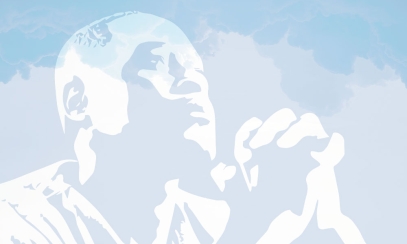
How Do I Know if I’m in Love?
Ah, Valentine’s Day! The annual celebration of flowery cards, crowded restaurants, overpriced flowers and, of course, love. By the way, you realize that you never give your wife a dozen roses. Instead, you give her 11 and tell her that she is the 12th! Or being the frugal fellow that I am, I give my wife one rose and tell her that she is the other 11!
Ah, Valentine’s Day! The annual celebration of flowery cards, crowded restaurants, overpriced flowers and, of course, love. By the way, you realize that you never give your wife a dozen roses. Instead, you give her 11 and tell her that she is the 12th! Or being the frugal fellow that I am, I give my wife one rose and tell her that she is the other 11!
But back to love: I once heard a golf pro say, “I just wish I could find a woman that I loved as much as golf!” This young man’s lament might also give a bride pause were she ever to consider scheduling a wedding during football season or March Madness.
So, what exactly is love, and how do you know if you are in love? Now, I’m no expert on it, but Robert Sternberg apparently is. Robert Sternberg? Bob is a Cornell University psychologist who likes triangles. While probably best known for his Triarchic Theory of Intelligence, he also proposed a Triangular Theory of Love.
And, why not? Triangles are the strongest and most stable geometric structures out there, used in building everything from bridges, towers and rooftops to playground equipment. Triangles are important for us Catholics, too, with our religion built on the foundation of the Holy Trinity, also a good foundation for Catholic love. And, above all, if anything requires strength and stability, it is love.
Triangular Theory of Love
Sternberg proposed that love has three components: intimacy, passion and commitment, which he placed at the points of a triangle, so you could look at each component individually or as three distinct pairs:
- Intimacy: By itself it’s friendship — you like somebody, enjoy being with them, have the same interests, lots to talk about.
- Passion: By itself it’s just infatuation — intense, but possibly short-lived. “Puppy love” and love-at-first-sight might be good examples, or falling head over heels for a movie star.
- Commitment: By itself it’s simply a decision — a rather empty state of being, without feelings or friendship. Such a relationship would be merely a formality, perhaps to reach some mutual goal, like making money or achieving high political office. Arranged marriages that occur in certain cultures might be another example of relationships based on commitment alone.
Romance, friendship & whirlwind courtships
Now, if you start pairing up intimacy, passion and commitment, you get some interesting interactions:
Intimacy & Passion make for a wonderful state of affairs called romance. This is where love usually begins, but it doesn’t end here. In romance, you are physically and emotionally attracted to each other, enjoy each others’ company, but there is no commitment.
Intimacy & Commitment are the components of a long-term friendship. It could be just good old friends, or perhaps an older married couple where the passion has faded a bit, but they still enjoy each other’s companionship. This is not to say that passion has to fade with age, but if it does, you can still fall back on intimacy and commitment.
Passion & Commitment are an interesting pair. An example of this might be a whirlwind courtship, where you hardly know the person, but you want to marry them on the spot. Another example might be a person who passionately wants to marry someone they barely know other than from news reports or television.
Passion, Intimacy & Commitment are the ultimate combination, bringing us finally to what Sternberg calls consummate or complete love. It would seem that such a relationship would start with passion and intimacy, and gradually grow into commitment. It would also seem that this is the Catholic ideal.
Of course, commitment is where the challenge begins. “Taking the leap” into the rest of your life with children, marital duties and obligations, restricted freedoms, financial and health issues, “till death do us part” — put that all together and it is enough to give pause to the most passionate and intimate among us.
But commitment does have its benefits, too. For starters, you will now have a lot more time for more important things in life than preoccupation with finding someone to marry. You can also start making long-term plans with your spouse regarding having children, buying a house, building careers, making investments, etc. When you join romance with commitment, life really begins anew, with all new choices and opportunities ahead for the two of you for years to come.
So, are you in love?
You know the components now: Intimacy, passion and commitment. However, don’t expect these components to be in perfectly equal measures. Comedians George Burns and Gracie Allen exemplified this point when George said, “With Gracie, for me the laughs (intimacy) came first. We had a marvelous marriage, and not because I was a great lover (passion).”
Commitment, though, is tough. You can’t possibly know all that lies ahead. About the best you may be able to do at the beginning of a marriage is to strongly predict that your love will adapt and grow until the end. Then, you take it one day, one year, one decade at a time, nurturing your intimacy and passion, while committing and recommitting yourself at each point along the way. As one expert said, you should get remarried every 10 years — to the same person!
P.S. In the spirit of full disclosure, my wife and I met on Valentine’s Day, 53 years ago, and she approves this message — with her usual reservations.
Thomas Dorsel, Ph.D., is professor emeritus of psychology at Francis Marion University, currently living on Hilton Head Island with his wife, Sue. He can be found on dorsel.com or cantoring at Holy Family Church.



